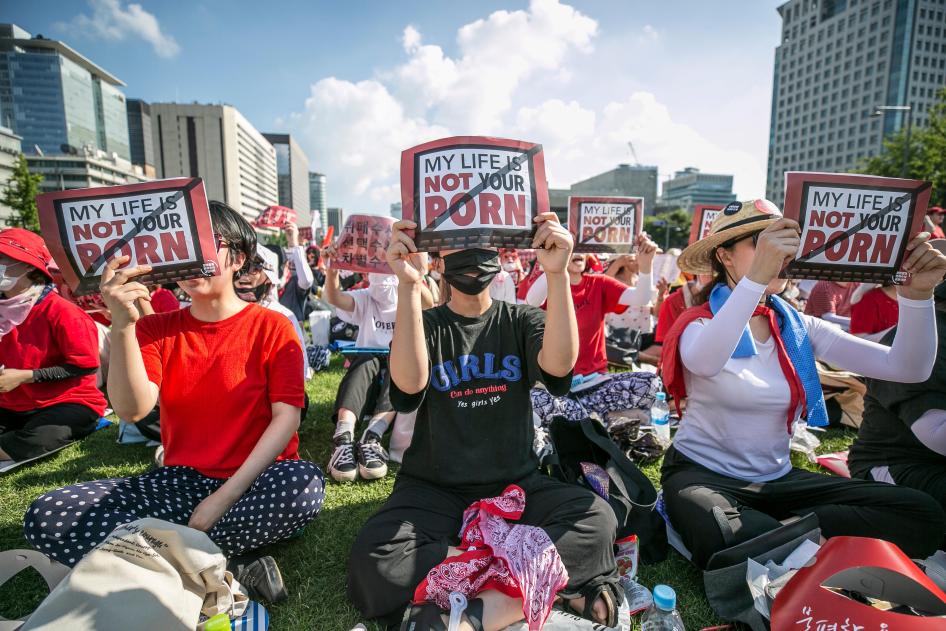South Korea faces an epidemic of digital sex crimes, hundreds of women and girls targeted through deepfake sexual images being shared online. One group sharing these images reportedly has 220,000 members. The number of reported deepfake cases alone has soared from 156 in 2021 to 297 as of July this year.
While South Korea’s president spoke out this week about this issue, over the years the country’s leaders seem to have had difficulty understanding the extraordinary and often lifelong harm these crimes cause.
In 2020, I interviewed women in South Korea who were survivors of digital sex crimes, some of whom were targeted using faked images. I also spoke to the father of a woman who was not a survivor, she died by suicide in 2019 after having been covertly filmed by a male colleague in the changing room of the hospital where she worked.
We also heard from protesters. In 2018, the South Korean government jailed a woman who posted a nude photo of a man. The case sparked a series of six protests; tens of thousands of women and girls marched through the streets of Seoul chanting slogans, including “My life is not your porn” and “Are we not human?” Men usually go free in such cases.
The government responded to these protests with legislation to expand the range of acts punishable as digital sex crimes and toughen penalties. It also established a center to assist survivors of digital sex crimes.
These responses were positive signs but nowhere near enough. Online gender-based violence is an increasing problem globally but is especially widespread in South Korea. Judges, prosecutors, police, and lawmakers in South Korea, the vast majority of them men, do not take these crimes seriously enough. Women seeking police help are often dismissed, retraumatized, and even ridiculed. There is very little sexuality education in South Korea’s schools to help young people understand how wrong this conduct is. These crimes happen against a backdrop of extreme gender inequality, where there is a 31 percent gender pay gap and less than 13 percent of board members are women.
The South Korean government has known for years that digital sex crimes were rampant and deadly. It’s time for them to take this crisis more seriously. The government should hold perpetrators accountable, provide comprehensive sexuality education to children and adults, and take meaningful steps to promote gender equality.










